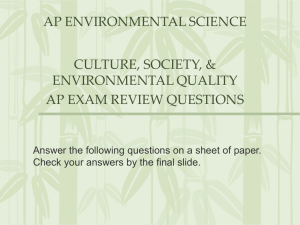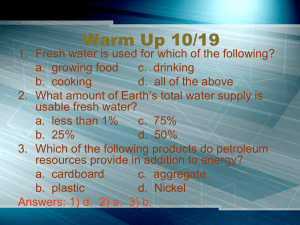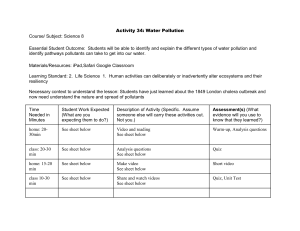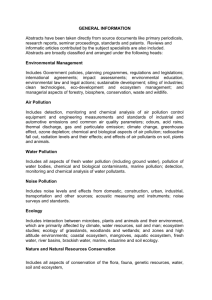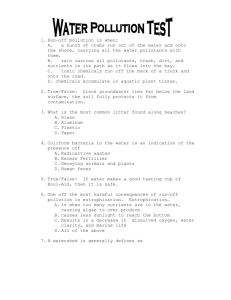Air pollution
advertisement
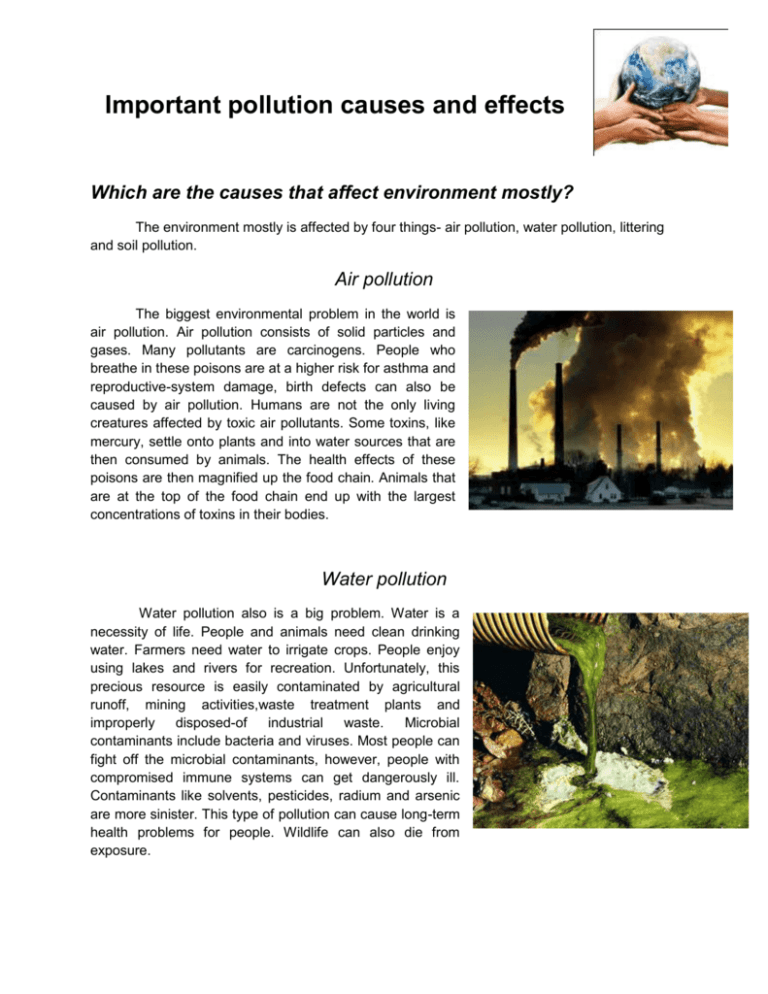
Important pollution causes and effects Which are the causes that affect environment mostly? The environment mostly is affected by four things- air pollution, water pollution, littering and soil pollution. Air pollution The biggest environmental problem in the world is air pollution. Air pollution consists of solid particles and gases. Many pollutants are carcinogens. People who breathe in these poisons are at a higher risk for asthma and reproductive-system damage, birth defects can also be caused by air pollution. Humans are not the only living creatures affected by toxic air pollutants. Some toxins, like mercury, settle onto plants and into water sources that are then consumed by animals. The health effects of these poisons are then magnified up the food chain. Animals that are at the top of the food chain end up with the largest concentrations of toxins in their bodies. Water pollution Water pollution also is a big problem. Water is a necessity of life. People and animals need clean drinking water. Farmers need water to irrigate crops. People enjoy using lakes and rivers for recreation. Unfortunately, this precious resource is easily contaminated by agricultural runoff, mining activities,waste treatment plants and improperly disposed-of industrial waste. Microbial contaminants include bacteria and viruses. Most people can fight off the microbial contaminants, however, people with compromised immune systems can get dangerously ill. Contaminants like solvents, pesticides, radium and arsenic are more sinister. This type of pollution can cause long-term health problems for people. Wildlife can also die from exposure. Littering Litter is unsightly and dangerous. It often consists of plastic, metal or glass — materials that do not break down easily in the environment. People, especially children, can be seriously injured by a broken bottle or a rusty piece of discarded metal. Medical and sanitary wastes are biohazards that can make people sick. Litter also destroys the beauty of parks and beaches, making people avoid these areas. Litter is deadly to wildlife, especially marine animals. Street litter washes into storm drains, into our waterways and ultimately ends up in the ocean. Some of this litter washes back up onto beaches. Some stays in the water, where it can kill wildlife. Entanglement causes animals to die slowly. Birds are particularly susceptible to entanglement as they collect material for their nests. A curious animal that ingests litter can die of starvation or malnutrition if the foreign object blocks the animal's intestinal tract. Litter can also smother and damage seabeds. Toxic substances from litter also accumulates in fish, exposing the people and animals further up the food chain to these pollutants. Soil pollution Soil pollution is defined or can be described as the contamination of soil of a particular region. Soil pollution mainly is a result of penetration of harmful pesticides and insecticides, which on one hand serve whatever their main purpose is, but on the other hand bring about deterioration in the soil quality, thus making it contaminated and unfit for use later. Industrial wastes such as harmful gases and chemicals, agricultural pesticides, fertilizers and insecticides are the most common causes of soil pollution.People and animals can inhale soil contaminants through dust that is present in the air or absorb these hazardous chemicals through their skin, also they can get sick eating plants, which have grown in polluted areas. A 20-year study published in the "American Journal of Epidemiology" found that people exposed to dioxin in soil experienced a higher rate of diabetes as well as cardiovascular and endocrine problems over the course of the study. What you can do to help prevent the pollution? Carpooling is a great way to save fuel. Whether going to work, or for shopping, make it a group affair. There is nothing more relaxing than a hot bath, but it uses up lots of water. Compare the water usage by taking a shower in the tub with the drain hole closed. Limit shower times to 7 minutes or less and you will save considerable water. Take advantage of sunshine and save electricity. Line dry your washing, if you can manage it without the clothesline becoming an eyesore. Dry tomatoes and fruit slices in the sun. Invest in renewable energy based technology - electric/hybrid cars, solar panels for heating and lighting etc. Use recyclables like newspaper, metal, plastic and glass for crafts. Grow seedlings in milk cartons or old socks. Repurpose household items whenever you can. Make sprouts in old cheese, butter, and yogurt tubs, or use them for storage. Repurpose T-shirts into quilts and rugs. Create a compost pile in your backyard. Use reusable grocery bags. Buy bulk food. How does the environment pollution affect society? The health effects caused by air pollution may include difficulty in breathing, wheezing, coughing, asthma and aggravation of existing respiratory and cardiac conditions. Environment pollution also can cause cancer. Mostly pollution can cause headache fatigue, respiratory illness, cardiovascular illness, skin irritation, gastroenteritis.

